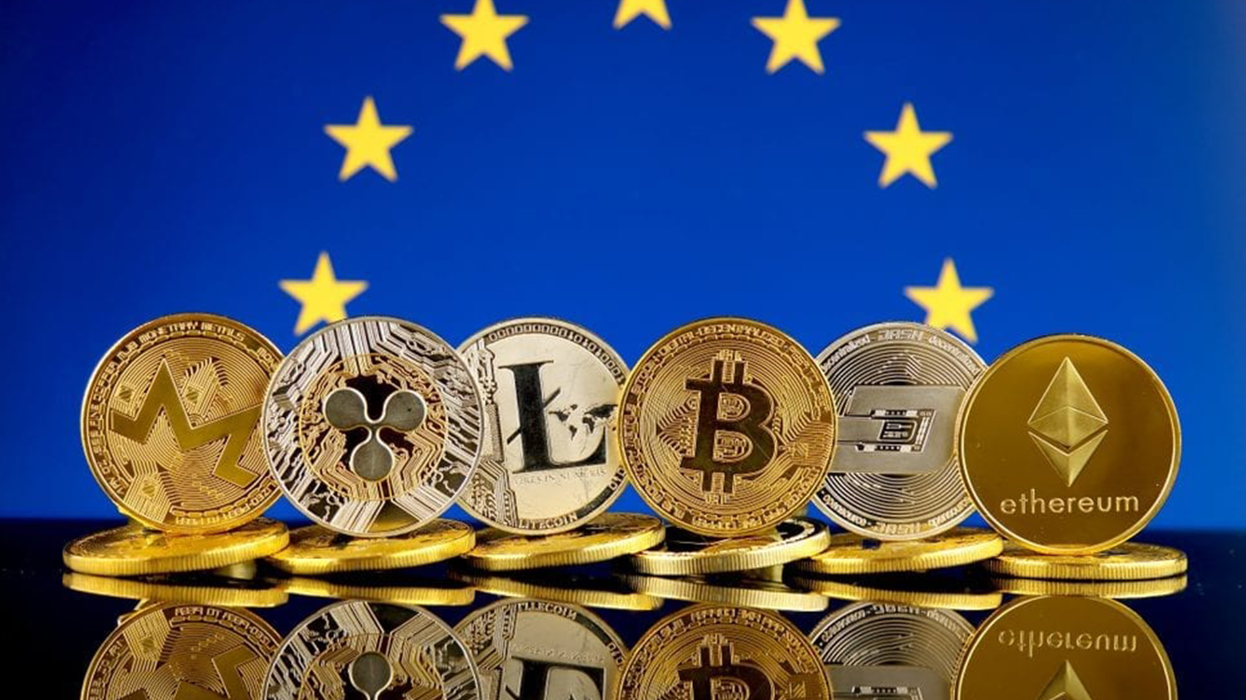Fri Jul 01, 2022
Friday / July 1
EU regulates crypto
EU officials on Thursday secured a major regulatory framework for the cryptocurrency industry. The European Commission, EU lawmakers and member states reached a deal after hours of negotiations.
The law known as Markets in Crypto-Assets, or MiCA, is designed to strictly regulate the crypto market.
Under the new rules, Stablecoins like tether and Circle’s USDC will be required to maintain ample reserves to meet redemption requests in the event of mass withdrawals. Stablecoins are also to face limited to 200 million euros in transactions per day if they become too big.
Meanwhile Bitcoin just finished its worst month on record, losing more than 38% of its value in June. Ether, the world’s second-biggest cryptocurrency by market capitalization, ended the same period down by about 47%.
Iran talks
The chances of reviving the 2015 Iran nuclear deal are worse after indirect U.S.-Iranian talks in Doha that ended without progress.
"The prospects for a deal after Doha are worse than they were before Doha and they will be getting worse by the day. You could describe Doha at best as treading water, at worst as moving backwards. But at this point treading water is for all practical purposes moving backwards," a US official told Reuters on condition of anonymity.
Speaking at the UN Security Council, U.S., British and French diplomats all placed the onus on Iran for the failure to revive the agreement after more than a year of negotiations.
Iran, however, characterized the Doha talks as positive and blamed the United States for failing to provide guarantees that a new U.S. administration would not again abandon the deal as Trump had done.
US stocks
The Dow Jones Industrial Average fell 253.88 points, or 0.82%, to 30,775.43. The S&P 500 lost 33.45 points, or 0.88%, to 3,785.38 and the Nasdaq Composite dropped 149.16 points, or 1.33%, to 11,028.74.
Big technology names in the US became less valuable in the first quarter, with Russia’s invasion into Ukraine and continued supply complications along with an energy crisis.
The MSCI global stock index notched its biggest first-half of a year percentage drop on record on Thursday. The US benchmark S&P 500 had its steepest percentage drop for the first six months since 1970.
The technology-heavy Nasdaq Composite index declined 22%.
Electric-vehicle maker Tesla endured its largest quarterly decline since its 2010 initial public offering as the stock sank almost 38%. In the quarter CEO Elon Musk made a bid to acquire social-media company Twitter for $44 billion.
Amazon stock dropped almost 35%, the most since the third quarter of 2001. The company’s first-quarter earnings fell short of analysts’ estimates in April as revenue growth slowed.
Shares of Google’s umbrella company, Alphabet, ended the quarter down almost 22%, the worst results since the fourth quarter of 2008. Microsoft shares dropped about 17%, the sharpest decline since the second quarter of 2010.
Apple’s stock fell almost 22% in the second quarter in the stock’s worst performance since the fourth quarter of 2018, when Apple reported light guidance and the stock market overall endured a steep selloff.
Facebook parent Meta Platforms saw its stock fall more than 27%. That was a better outcome than the first quarter, when the stock’s value compressed by about 34%.
Drugmakers Eli Lilly and Merck, cereal manufacturer Kellogg and discount retailer Dollar General all outperformed these six companies, posting gains of at least 10% in the quarter.
Starlink aviation approval
The US Federal Communications Commission on Thursday authorised Elon Musk’s SpaceX to use its Starlink satellite internet network with moving vehicles, greenlighting the company’s plan to expand broadband offerings to commercial airlines, shipping vessels and trucks.
Starlink, a fast-growing web of internet-beaming satellites in orbit, has long sought to grow its customer base from individual broadband users in rural, internet-poor locations to enterprise customers in the potentially lucrative automotive, shipping and airline sectors.
“Authorising a new class of terminals for SpaceX’s satellite system will expand the range of broadband capabilities to meet the growing user demands that now require connectivity while on the move,” the FCC said in its authorisation.
